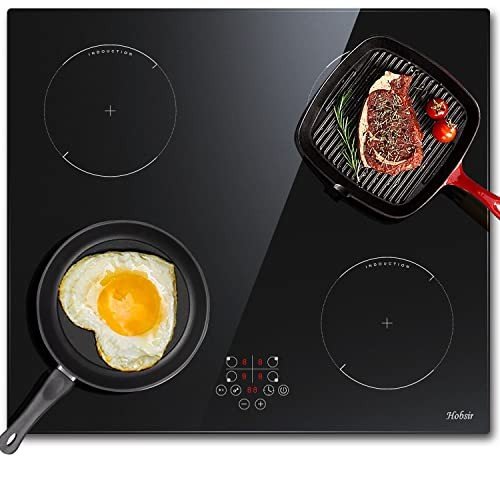Understanding Kitchen Ovens and Hobs: A Comprehensive Guide
The kitchen is frequently referred to as the heart of the home, and for great reason. It is where families come together, meals are prepared, and memories are created. Central to this cooking haven are two necessary appliances: the kitchen oven and the hob. Comprehending their functions, types, and functionalities is important for effective cooking and can significantly boost a home chef's experience. This short article will look into the world of kitchen ovens and hobs, examining their various types, advantages, and pointers for making informed choices.
Tabulation
- Intro to Kitchen Ovens
- Types of Ovens
- Traditional Ovens
- Convection Ovens
- Microwave Ovens
- Steam Ovens
- Comprehending Hobs
- Kinds of Hobs
- Gas Hobs
- Electric Hobs
- Induction Hobs
- Benefits of Using Ovens and Hobs
- Selecting the Right Oven and Hob for Your Kitchen
- Upkeep Tips for Ovens and Hobs
- FAQs
- Conclusion
1. Introduction to Kitchen Ovens
Ovens are indispensable home appliances in modern kitchens. They provide a regulated environment for baking, roasting, and broiling food. With various styles and performances, choosing the right oven can drastically affect cooking times, food texture, and taste.
2. Types of Ovens
Standard Ovens
Standard ovens are the most typical type found in homes. They use either electric or gas power to heat the interior and usually include a single cooking area.
Benefits:
- Versatile for baking, roasting, and broiling.
- Generally budget-friendly.
Convection Ovens
Stove resemble traditional ovens however come equipped with a fan that flows hot air throughout the cooking chamber. This leads to even cooking and browning.
Benefits:
- Reduced cooking times due to improved airflow.
- Improved browning and crisping of foods.
Microwave Ovens
Microwave use electro-magnetic radiation to heat food rapidly, making them hassle-free for defrosting and reheating leftovers.
Advantages:
- Very quick cooking times.
- Energy effective.
Steam Ovens
Steam ovens utilize steam to prepare, maintaining the wetness and nutrients in food. They are especially popular amongst health-conscious cooks.
Benefits:
- Healthier cooking alternative.
- Retains minerals and vitamins in food.
3. Comprehending Hobs
Hobs, also understood as cooktops, are the flat surface areas on which pots and pans are positioned to cook food. They can be integrated into kitchen countertops and are offered in numerous styles, fuel types, and designs.
4. Types of Hobs
Gas Hobs
Gas hobs use gas burners as their heat source, offering instantaneous heat and accurate temperature control.
Advantages:
- Excellent control over cooking heat.
- Generally cheaper to operate than electric ones.
Electric Hobs
Electric hobs heat utilizing electric coils or glass surface areas. They may take longer to warm up than gas, however they provide a smooth cooking surface and are simpler to clean up.
Advantages:
- Even heat distribution.
- Safe, as there's no open flame.
Induction Hobs
Induction hobs use electro-magnetic energy to straight warm pots and pans. They require suitable cookware and deal instant responsiveness.
Advantages:
- Highly energy-efficient.
- Faster cooking times and accurate temperature control.
5. Benefits of Using Ovens and Hobs
Both ovens and hobs included their own special set of benefits that can improve any cooking experience. Here are a few crucial advantages:
- Diverse Cooking Options: Both devices permit a series of cooking methods including boiling, frying, roasting, baking, and steaming.
- Time Efficiency: Modern ovens and hobs typically feature quick cooking settings, which save time in the kitchen.
- Accuracy Cooking: With innovative features, users can attain better results in temperature level control and cooking times.
6. Picking the Right Oven and Hob for Your Kitchen
When picking the right oven and hob, various elements should be considered:
- Size: Ensure that the appliance fits easily in your kitchen area.
- Cooking Style: Consider what types of food you frequently prepare.
- Fuel Type: Whether gas or electric, think about accessibility and performance in your area.
- Budget plan: Determine your budget plan and discover home appliances that meet your requirements within that range.
Checklist for Choosing Your Oven and Hob:
- Assess kitchen area.
- Identify your cooking preferences.
- Determine source of power accessibility.
- Compare functions and requirements.
- Set a budget range.
7. Maintenance Tips for Ovens and Hobs
Regular upkeep is vital for keeping ovens and hobs in optimal condition. Here are some maintenance tips:
- Clean Regularly: Wipe down surfaces after each use and deep tidy periodically.
- Inspect Seals: For ovens, inspect door seals to guarantee they are airtight.
- Analyze Burners: For gas hobs, keep burners without food debris to keep efficient heating.
- Change Filters: If your oven has a filter, replace it as recommended by the maker.
8. Frequently asked questions
1. What is Hobs Sale between a standard oven and a convection oven?Conventional ovens
prepare food through convected heat, while stove distribute hot air, leading to faster and more even cooking. 2. Do induction hobs require special cookware?Yes,
induction hobs need ferrous pots and pans that is capable of being magnetized to work successfully. 3. Are steam ovens worth the investment?For health-conscious individuals or those who frequently prepare vegetables and fragile foods, steam ovens can be worth the financial investment
due to their ability to keep nutrients. 4. Can I integrate an oven and hob into one unit?Yes, numerous manufacturers provide combined systems known as range cookers, which integrate both an oven
and hob into a single device. 9. Conclusion Kitchen ovens and hobs are vital components of any culinary space, each offering distinct features and functionalities suited for numerous cooking styles.
By understanding the
kinds of ovens and hobs available, their advantages, and how to preserve them, home chefs can cultivate a more effective and enjoyable cooking experience. Whether one is a seasoned cook or a newbie, making notified choices about these vital kitchen home appliances is important.

